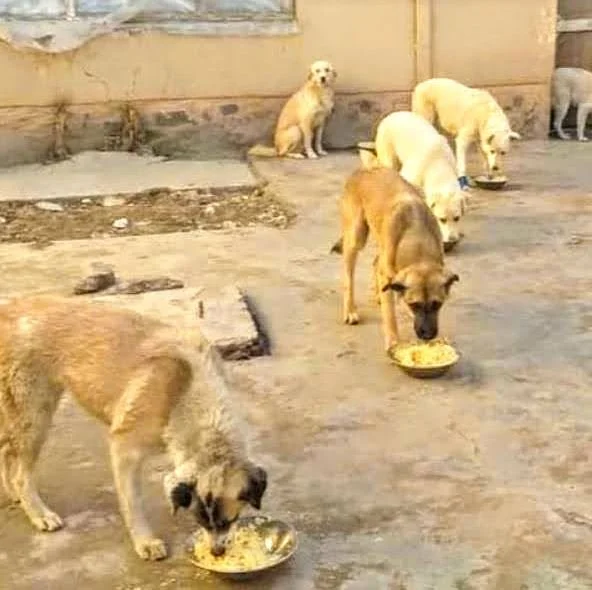In Kabul, American Woman Fights for Dogs, Cats, Peacocks
It’s been a year since Charlotte Maxwell-Jones refused to leave Afghanistan as the country fell into Taliban control. The woman from East Tennessee who founded the Kabul Small Animal Rescue would not abandon the many dogs, cats, sheep, and parrots during the chaotic US withdrawal.
“They’re my responsibility and I love them and I care for them,” Maxwell-Jones said at the time. “I think there’s less chance of recovering them if I’m not here.”
Stranded at the airport, Maxwell-Jones got some help from the Taliban, who escorted her back to the rescue. There she resumed her work, taking in even more dogs and cats while arranging for hundreds of animals to be flown out of the country.
In January the first flight whisked 286 dogs and cats out of harm’s way. They landed in Vancouver where about 80 were reunited with their owners who were either Afghan refugees or foreign workers; the rest found temporary sanctuary in about a dozen rescue shelters while they awaited adoption.
Maxwell-Jones spoke with us by phone from Kabul this week to talk about the challenges faced by a woman, an American working in a land recently at war with the US. She chooses her words carefully.
“The paperwork involved with international transport of animals is hell,” she says, recalling the plane's return flight, which brought a load of pet food back to Afghanistan. “We actually had a very large shipment, but the customs process for that took about five and a half months to complete. So we probably won’t do that again until they streamline that.”
Why bring the animals to Canada? Because the US recently banned dogs from a list of 113 countries that are considered high risks for rabies; Afghanistan (and, by the way, Ukraine) are on that list. Canada plans to operate from the same list starting in September – instead of, say, doing something helpful and sensible like setting up airport vaccination clinics.
Meanwhile Maxwell-Jones remains in Kabul where co-ed workplaces are forbidden. “We have an all male staff right now, about 85, all paid. We do occasionally get volunteer foreign vets coming in.”
While waiting for the shipment to be cleared, she improvised. “For a long time we made a lot of rice and chicken, soya and coconut oil.” The menu changed when the chicken had a whole lot of salmonella.
Kabul is huge with about 4.5 million people and an estimated 50,000 to 100,000 dogs roaming the streets. “We’re the only facility that is basically 24/7 operational, and so our intake is just nuts right now, like it’s constant.”
The Kabul Small Animal Rescue comprises 14 facilities spread out around the city. “We’re the only facility that won’t turn away an animal and so we get A TON of them. Right now we have about 250 – about three-quarters are dogs; the rest are mostly cats, but we also have seven sheep, three tortoises, some chickens …” She pauses to recall what she’s forgetting. “Ah, and we have some peacocks.” As far as the neighbors are concerned, their strutting beauty does not compensate for their ghastly shrieking.
Social media helps a little but the trolls are plentiful. “Every time we get into the news, we get so many crazy people coming after us. We closed our Twitter account last September because it was craziness. The abuse was pretty astounding.”
She keeps her head down and perseveres.
Maxwell-Jones recently set up a GoFundMe page here: gofundme.com/f/kabul-operations. Or, you can help out Kabul Small Animal Rescue through their Facebook page at www.facebook.com/kabulsmallanimalrescue.
Photo credit: Kabul Small Animal Rescue via Facebook







